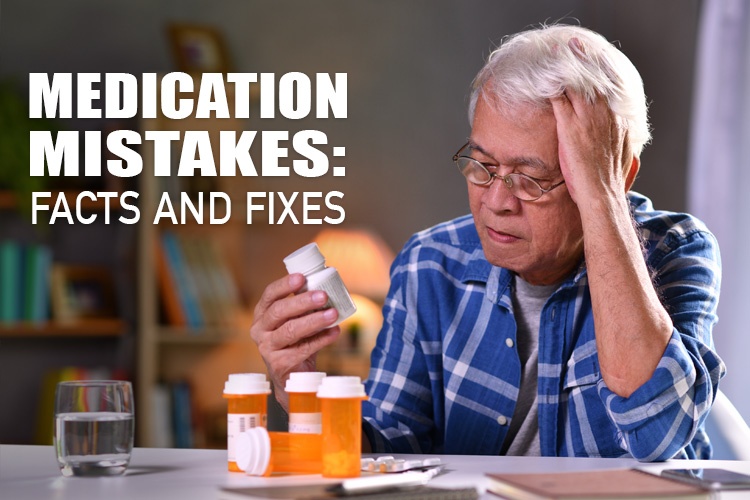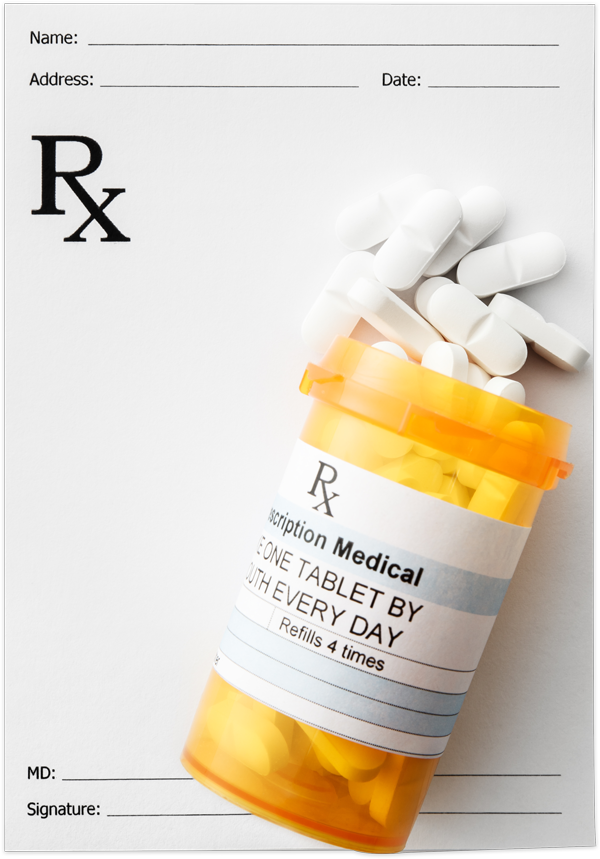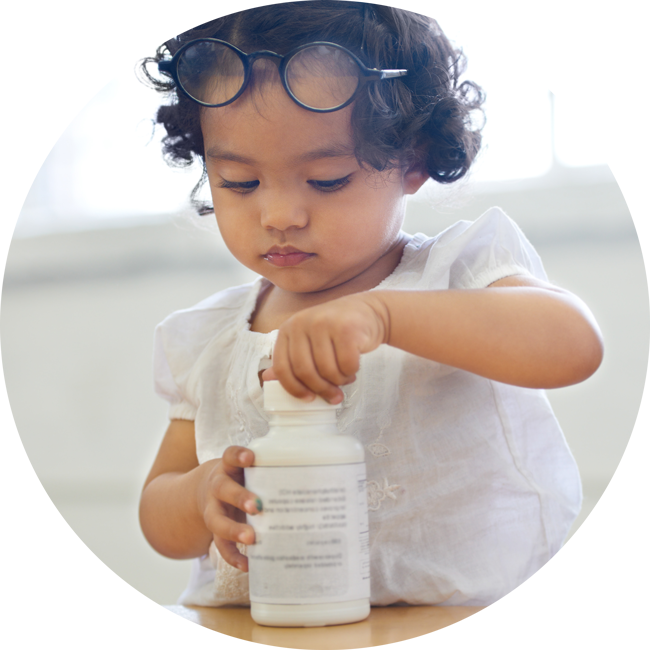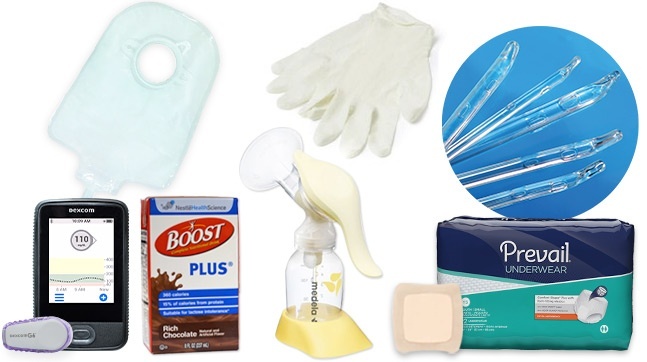Medication Mistakes: Facts and Fixes
This post was reviewed by our Director of Clinical Excellence and Oversight.
In most cases, these medication mistakes are not catastrophic. But 1.3 million people end up in the emergency room each year from adverse drug effects (ADEs). And 50,000 kids visit hospital emergency departments because they got into medicines they shouldn’t. Adverse reactions result in $3.5 billion in excess medical costs!

Respect Your Meds
We tend to take medications for granted, but in fact they are pretty miraculous. These tiny chemical delivery vehicles actually cure some diseases, reduce symptoms in others, and keep unwanted health conditions at bay. Medications are a daily part of most people’s lives and it’s hard to imagine where we’d be without them.
There are two types of medications—prescription (such as Metformin for diabetes) and over-the-counter or OTC (like Tylenol for pain relief). Both may be marketed under a brand or generic name.
Why is it so important to take meds correctly? The U.S. Food and Drug Administration (FDA) explains, “Simply put, not taking your medicine as prescribed by a doctor or instructed by a pharmacist could lead to your disease getting worse, hospitalization, even death.”
While you may be a stickler for complying with your doctor’s orders, not everybody is as careful. According to the FDA:
- 20-30% of new prescriptions are never filled.
- 50% of the time, medications are not taken as prescribed.
- After 6 months, the majority of people with chronic conditions take less medication than prescribed or stop taking it altogether.
Reasons for not taking the medication properly include not understanding the directions, forgetting, unpleasant side effects, cost, and multiple medications with different regimens. Some people stop because they believe the medication isn’t working.

After 6 months, the majority of people with chronic conditions take less medication than prescribed or stop taking it altogether.
Ask Before You Swallow
The best way to avoid medication mistakes is to understand what you take and why. To keep things straight, start with an accurate list of all the medications you take, including vitamins and supplements. Take the list with you each time you visit the doctor. Update it with any changes your doctor makes to your prescriptions and be sure your doctor understands every medication and supplement you are taking.
With every new prescription, ask the prescriber these questions:
- What is the brand or generic name?
- What should the medication do? How long until I see results?
- What is the dose—how much, when, and for how long?
- What if I miss a dose or accidentally take too much?
- Are there any restrictions regarding food, beverages, or activities while I’m on it?
- What are possible side effects and what do I do if they develop?
- Could the medication interfere with anything else I take?

Keep medicines in their original containers and never share them, even if a friend or family member has a condition that sounds similar to what you’re being treated for.
Simple Rules to Avoid Mistakes
Now that you have a list of what you take and when to take it, follow these simple rules to avoid the most common errors people make with their medications:
- Check the prescription before leaving the pharmacy to make sure it’s correct. Talk to your pharmacist about synchronizing your refills.
- Save the information sheets that come with your medicines in case you have a question later.
- Check storage instructions—some meds need to be refrigerated, all of them should be kept out of reach of children.
- Take the prescribed dose at the right time on the right day. Use a pill container and calendar to keep it straight. Some people set a cell phone alarm to remind them to take their medicine.
- Refill your pill container at the same time every week.
- Make taking medicines part of your daily and/or nightly routine.
- Never skip doses or cut pills unless directed to do so by your doctor.
- Finish the prescription; stop only when the doctor says you can.
- Chew or swallow pills exactly as prescribed.
- Use an oral syringe or dose cup to measure out a liquid medication, not a spoon from your kitchen drawer.
- Confirm that you’ve taken a dose. Some people turn over the pill bottle; others use pill cap alarms.
- When you travel, always take a few days of extra medication. If you fly, pack your meds in your carry-on, not in your checked luggage.
My Meds: Do Not Enter!
Your prescription medications have your name on them for a reason. Keep prescription medicines in their original containers and never share them, even if a friend or family member has a condition that sounds similar to what you’re being treated for.
It’s also extremely important to keep your pills far away from children who are fascinated by—and incredibly adept at opening—bottles and jars with colorful contents! Keep your medications out of reach in a storage spot kids—and pets—can’t access, like a locked box or high cabinet. Never leave bottles on the kitchen table or by your bedside. If you have guests whose purses or bags may contain pill bottles, ask them to put them out of reach while they visit. Make sure to fully close medicine bottles. Turn the top until you hear the locking mechanism click.

The CDC warns parents against telling children medicine is candy as a way to get them to take their own medicines. Teach kids that they should only take medicine from a parent or trusted adult, such as a caregiver or school nurse.
If you or someone else accidentally takes medicine you shouldn’t, call poison control at 800-222-1222. If you believe the situation is an emergency, call 911.
More than Scooping Pills into Little Bottles
We rely on pharmacists to dispense medications. But in fact, these highly trained healthcare professionals have many other ways to help us stay well. These include health screening or coaching, immunizations, medication reconciliation (making sure your medication list is up to date), and medication therapy management, which includes services like educating patients and advising them on health and lifestyle behaviors.
Establish a relationship of trust with your pharmacist. Don’t hesitate to ask questions about your prescriptions and how to get the most from them. While a conversation with the pharmacist is not a substitute for a visit to the doctor, you may be surprised at how valuable it can be!
Properly taking your medicine is an essential element of self-care. If you feel you need help, don’t hesitate to ask for it.
Another source of support? The trained and super friendly customer service team at Home Care Delivered! While we do not handle or deliver medications, we do supply products that you may need in addition to your medication, such as diabetes testing supplies, ostomy products, and advanced wound dressings. We’re easy to reach by phone, text, or online and we’ve earned a 98% customer satisfaction rating and an A+ rating from the Better Business Bureau.
Call today to enroll at 804-885-4101. Getting your meds and supplies right is a prescription for peace of mind!


